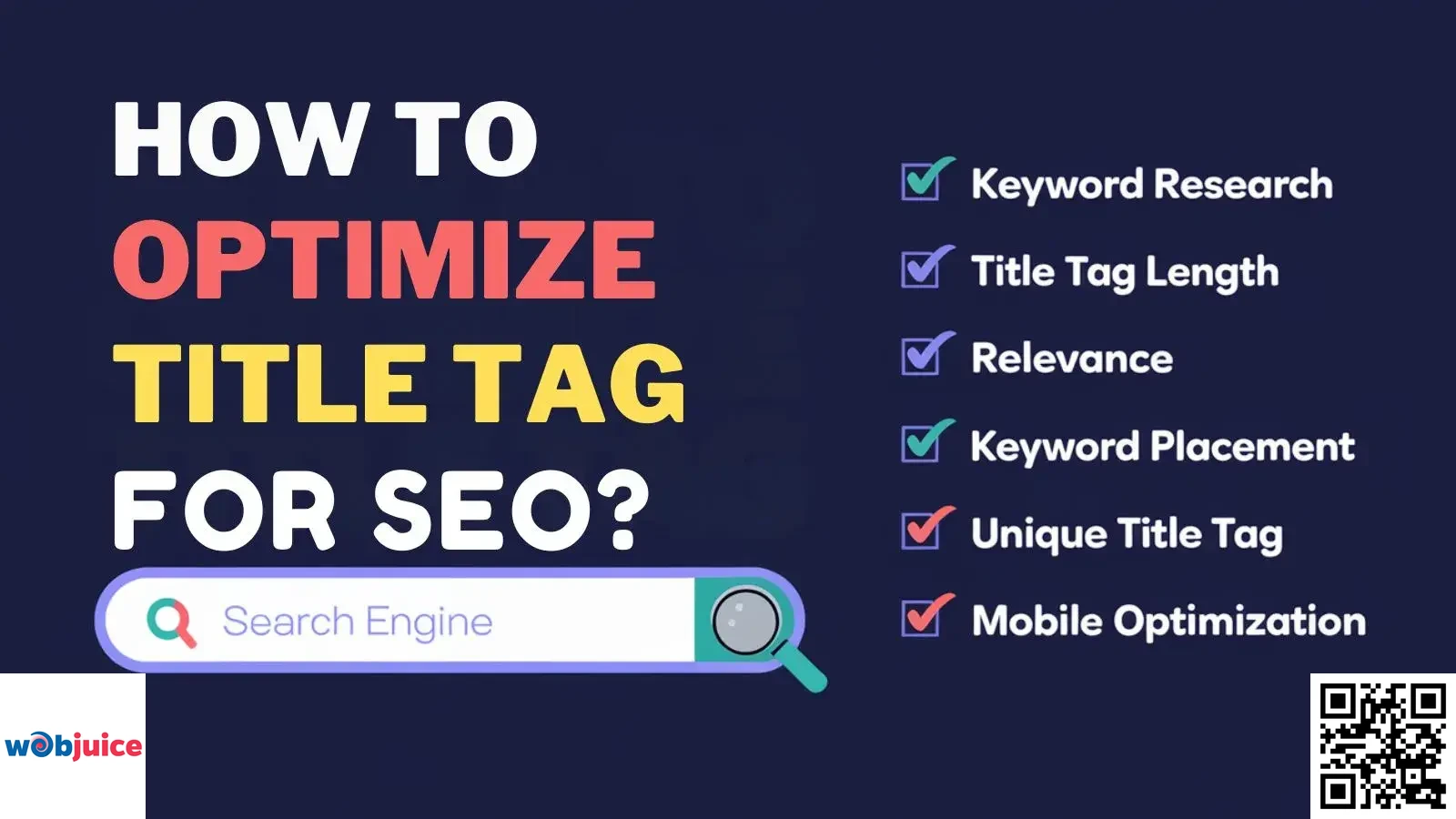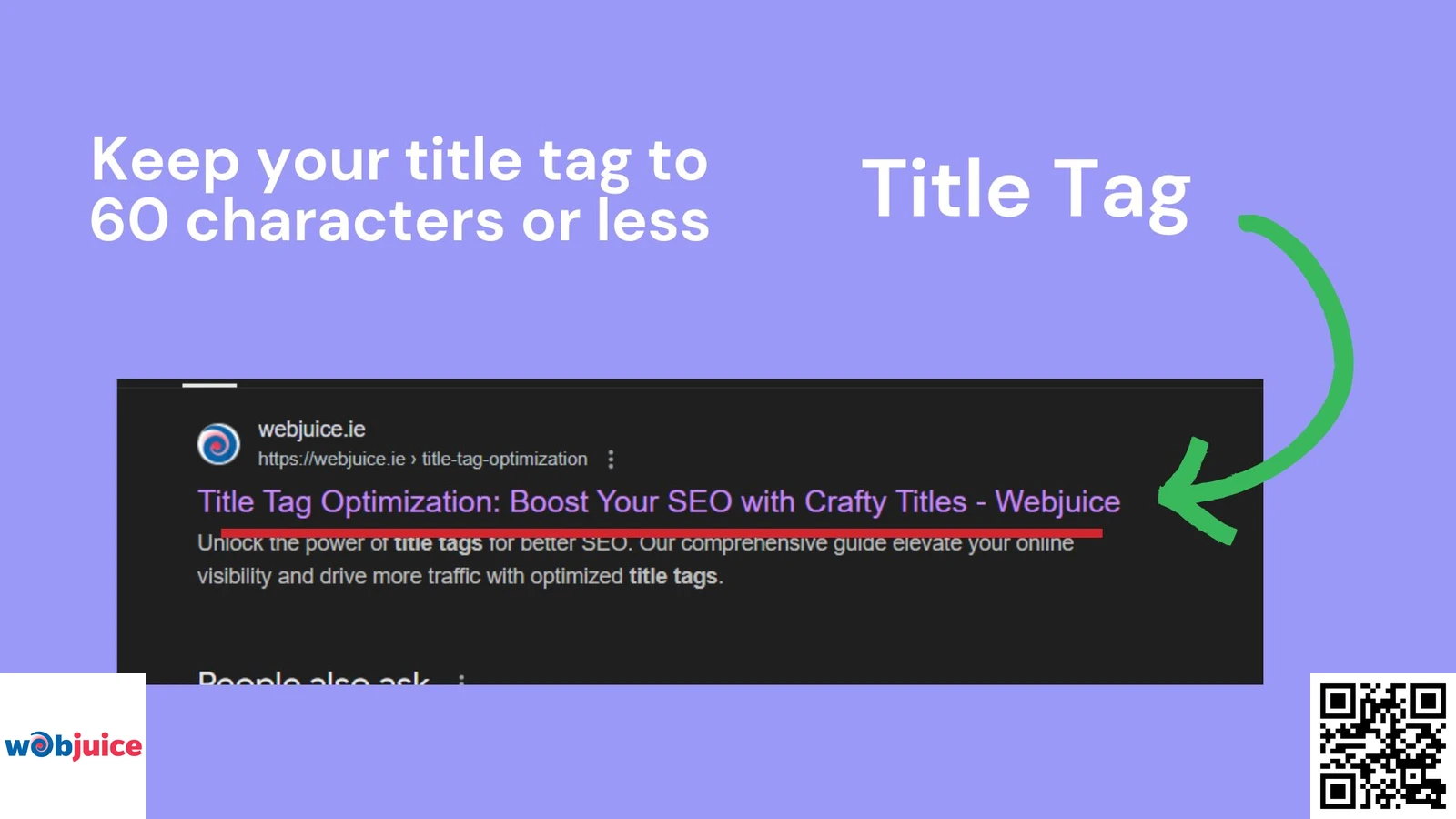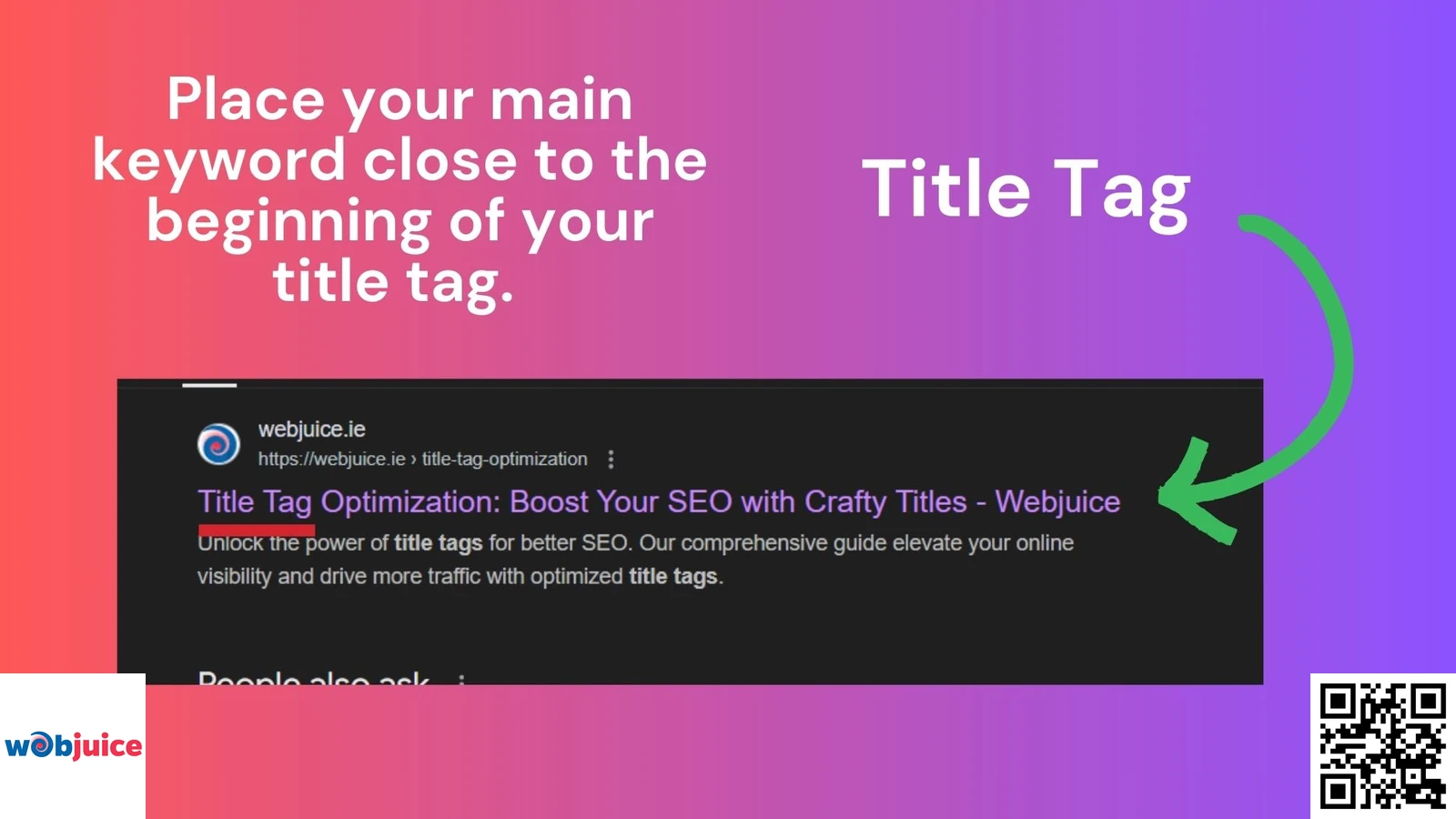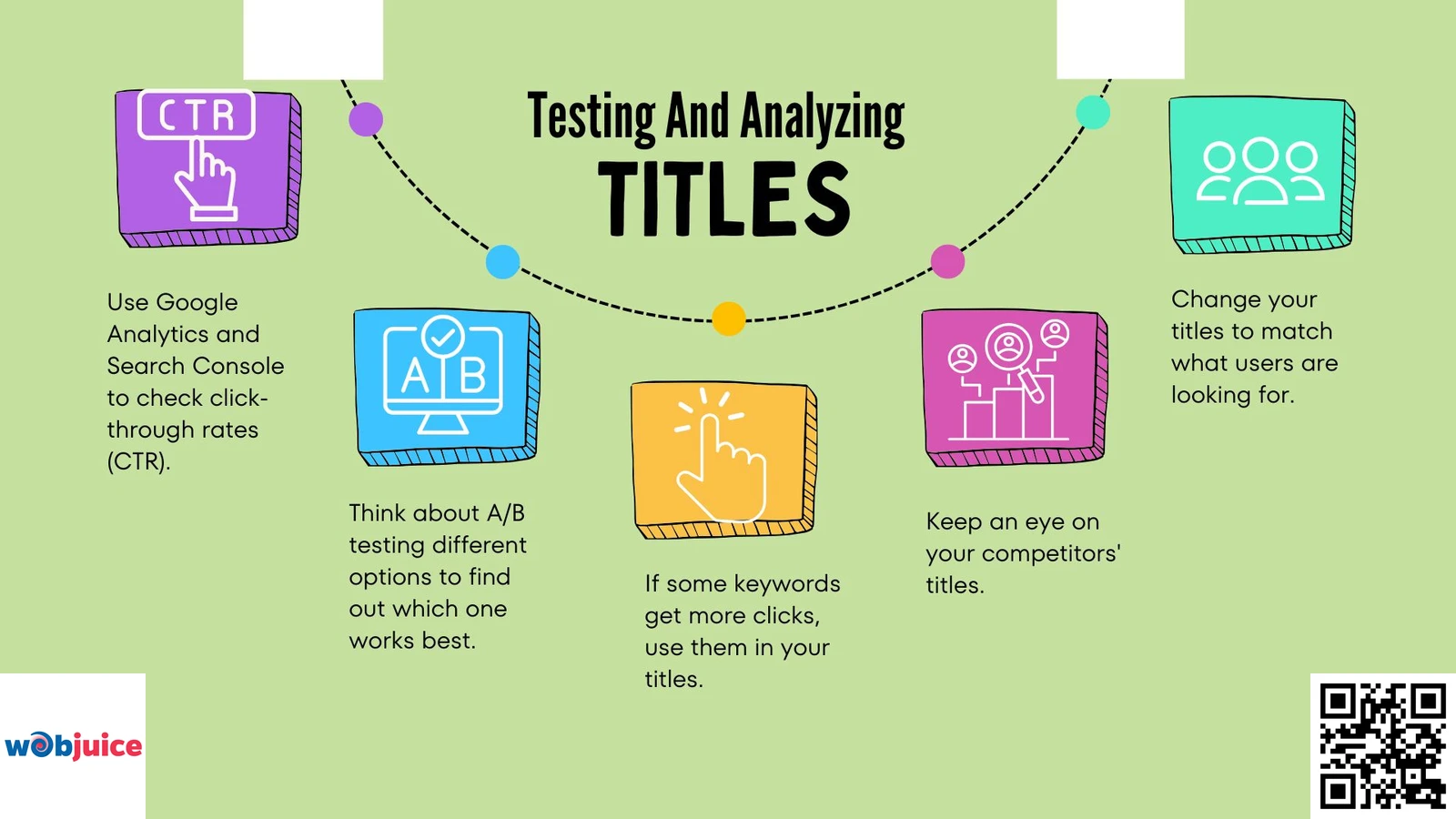In the competitive landscape of search engine results, your page’s title tag is your first and most critical handshake with both users and algorithms. More than just a name, a strategically crafted title tag is a fundamental pillar of on-page SEO, directly influencing click-through rates, search rankings, and overall digital visibility. This definitive guide delves into the art and science of title tag optimization. You will learn why this meta element is non-negotiable for SEO success and discover actionable, best-practice strategies to implement immediately. We break down the precise formula for creating high-performing titles: from the ideal character count that prevents cut-off in SERPs to intelligent keyword placement that boosts relevance without triggering penalties. Furthermore, we explore advanced techniques, such as incorporating long-tail keywords for targeted traffic and the imperative of crafting a unique, compelling title for every single page. By mastering these principles—testing and refining your approach based on performance data—you can transform your title tags from mere descriptors into powerful tools that capture attention, drive qualified traffic, and amplify your online presence.
Key Takeaways
- Use main keywords near the start of title tags to increase visibility and search engine recognition.
- Keep titles between 50 and 60 characters long to avoid cut-off and ensure full visibility in search results.
- Make different titles for each page to make content stand out and improve search rankings.
- Add long-tail keywords to attract specific traffic and engage with niche audiences.
- Test and check how titles perform often with tools like Google Analytics to find and use good variations.
Importance of Title Tags
Title tags are the first thing search engines and users see.
When you create a good title tag, you help search engines and attract visitors to click on your link.
A good title tag tells search engines what is on your page.
This helps them index it correctly.
Learning to use title tags is key for boosting your website’s visibility and search engine ranks.
By using strong title tag techniques, you can greatly improve your overall SEO results.
Title tags greatly affect your click-through rates (CTR).
A higher CTR means a better chance of ranking higher in search results.
If you ignore this important part, you may lose possible traffic and visibility.
Title tags let you add keywords that help your SEO work better.
By placing these words in the right spots, you make it more likely that your content will show up in search results when people type in related searches.
In the busy world of online content, knowing how to use title tags well can help you stand out.
This can bring the right visitors to your website and improve your whole SEO plan.
Best Practices for Title Tags
Here are some tips for creating effective title tags:
- Keep titles correct.
- Include main keywords at the start and focus on engaging the audience.
- Title tags should honestly show what the page is about. This helps to not annoy users and reduces the chances they will leave quickly.
- Place main keywords early to help search engines see what your content is about.
- Writing good meta descriptions is important for improving SEO.
- Use language that fits your audience and keeps a smooth flow.
- Don’t use too many keywords, as this can hurt SEO.
- Create special titles for each page. This will help them get noticed in search results. It could also increase the number of clicks.
- Adding your brand name can help build recognition and trust. However, make sure it doesn’t hide the main keywords.
If you follow these rules, you will create strong title tags.
Length and Character Limits
The best length for title tags in SEO is 50 to 60 characters.
This way, they show up completely in search results and do not get cut.
Content optimization is important for SEO, and title tags matter a lot.
If you pay attention to character limits, you can make your content more visible and attractive to search engines.
Sticking to these guidelines also helps raise click-through rates.
This makes your content more appealing to visitors who might come to your site.
Keeping titles within this range helps them show up correctly in search results.
It also makes it easier to grab readers’ attention.
Ideal Title Length
The best title length for SEO is usually 50 to 60 characters.
This range helps your title show fully in search engine results.
It maximizes visibility. If you keep your title within this limit, you help avoid truncation.
This can prevent lost clicks and lower engagement.
Short titles might not give out the important information needed, and long titles can confuse the reader.
It is important to find a good balance.
A strong title gets attention and includes useful words, helping you rank better in search results.
Think about your audience when you make your titles.
Ask yourself what they are looking for. Consider what will make them want to click on your link.
Character Limit Guidelines
Title tags should be 60 characters or less to be fully visible in search results.
So, it’s important to stay within this limit.
Optimizing title tags helps with SEO and leads to more clicks.
It’s not only about how long they are; knowing character limits is important too.
When titles exceed the limit, they can be cut off, meaning less impact and clearer meaning.
Remember the width too. Google shows around 600 pixels for a title tag.
Wider letters, such as “W” or “M,” can lower the number of visible characters.
Use tools to see how your title shows up in search results.
This helps you adjust your title to meet the guidelines while keeping it interesting and informative.
Use of Keywords
Put the main keywords at the start of your title tag.
This will help your site be seen better.
Long-tail keywords are useful.
They bring focused visitors to your site.
By using keywords wisely, you can reach your target audience better.
Remember to balance using keywords with titles that sound natural.
Avoid putting too many keywords in, as it can hurt your search engine ranking.
Instead, focus on making clear titles that show your content well.
Keyword Placement Strategies
Place your main keyword close to the beginning of your title tag.
This attracts interest from search engines and users.
Use the keyword in a way that flows well in your title.
Do not force it in. This can hurt your rankings and drive away visitors.
Try different keyword variations in your title.
This helps you reach more people and catch different searches.
Long-Tail Keywords Importance
Long-tail keywords help people find specific content.
These keywords are usually longer phrases that focus on what users want.
By using long-tail keywords, your content can attract targeted visitors.
They often have less competition, making it easier to rank higher in search results.
Optimizing title tags with longer keywords helps increase visibility and draws in visitors who are more likely to convert.
Instead of going for general terms, try to use specific phrases.
This method lowers competition and improves click-through rates.
Crafting Compelling Titles
To create them, understand your audience. What do they want? Make titles fit their needs.
Simply use keywords. Don’t go too far with it. Be clear and interesting.
Ask questions or make strong statements.
“Unlock Top SEO Secrets for Boosting Your Website Traffic” is better than “SEO Tips” every time.
Keep titles short. A maximum of 60 characters is best.
This helps people see the full title in search results.
It also allows readers to understand the content quickly.
Avoiding Keyword Stuffing
Three key strategies to stop keyword stuffing while making your title tags better for SEO:
- First, focus on making natural titles that truly show what your content is about. This method draws in users and gets them to click without overloading on keywords. Search engines care about user experience. That is why clarity is very important.
- Limit your keywords to one or two main phrases. Choose words that match what your audience is looking for and use them smartly. For instance, if your article is about digital marketing, consider a title like “Mastering Digital Marketing Strategies.” This way, you avoid saying “digital marketing” too many times.
- Use different words and forms of your main keywords. This practice improves your title and helps you avoid saying the same thing over and over. By changing up your language, you make the reading more enjoyable. It also shows search engines what your content is about.
Unique Titles for Each Page
Try to keep titles between 50 to 60 characters so they show up well in search results.
Make sure your titles show your brand’s voice.
They should match your marketing plan.
This helps strengthen your brand identity.
Investing time in special titles helps improve SEO and builds trust with your audience.
In the busy online world, details are important.
Special titles make you stand out from the rest.
They boost your online presence and bring more visitors to your website.
Testing and Analyzing Titles
Use Google Analytics and Search Console to check click-through rates (CTR).
A low CTR could mean your titles don’t connect with users, so think about A/B testing different options to find out which one works best.
Keyword performance is important. If some keywords get more clicks, use them in your titles.
Also, keep an eye on your competitors’ titles.
Change your titles to match what users are looking for.
If users click on your title but leave right away, it might mean your title does not fit your content.
Don’t ignore how important user engagement metrics are.
This step makes sure your titles are not just colourful but also bring in traffic and satisfy user needs.
Title Tag Optimization FAQ
Detailed answers to common questions about crafting effective title tags for SEO and user engagement
How Often Should I Update My Title Tags?
While there’s no fixed schedule, a proactive, strategic approach is key. Review and update your title tags quarterly or bi-annually as part of your general SEO audit. More importantly, update them immediately when:
- You significantly update or refresh the page’s core content
- You identify a shift in target keyword performance or user search intent
- Analytics show a declining click-through rate (CTR) for a previously strong page
Regular updates signal freshness to search engines and help maintain relevance. However, avoid unnecessary changes to stable, high-performing pages, as this can reset historical ranking signals.
Can Title Tags Affect Social Media Sharing?
Absolutely. While social media platforms often allow custom post titles, the title tag is typically the default text auto-populated when a URL is shared. A compelling, curiosity-driven title tag acts as your first impression, dramatically increasing the likelihood of clicks and shares within social feeds.
It reduces the need for manual editing by sharers. A strong title tag that encapsulates the content’s value proposition—using power words, questions, or clear benefits—enhances shareability, extends reach, and drives referral traffic from social channels to your site.
Do Title Tags Impact Mobile SEO?
Yes, title tags are critically important for mobile SEO. Given the limited screen real estate on mobile devices, title tags are more prone to truncation (often after 70-80 pixels). A concise, front-loaded title under 60 characters ensures your core message is visible in mobile SERPs.
Furthermore, mobile users often scan results quickly; a clear, benefit-driven title tag can improve usability and CTR. Since Google uses a mobile-first indexing approach, the elements it reads to understand your page—including the title tag—are paramount for ranking well in mobile search results.
What Tools Can Help Optimize Title Tags?
Several specialized tools can streamline optimization:
- Yoast SEO & Rank Math (WordPress Plugins): Provide real-time feedback on title length, keyword usage, and previews of how the title will appear in SERPs.
- SEMrush & Ahrefs (SEO Suites): Offer in-depth features like SERP simulation to see competitor titles, keyword ranking data to inform choices, and historical tracking to test what works.
- Moz Pro: Includes a title tag preview tool that analyzes length and offers optimization suggestions.
- Google Search Console: The most crucial free tool; its Performance Reports show the exact queries your page appears for and its CTR, allowing you to craft titles that better match search intent.
Can I Use Emojis in Title Tags?
Proceed with caution. While technically possible and occasionally effective at boosting CTR in certain niches (e.g., entertainment, fashion), using emojis carries risks:
- They may not display consistently across all browsers or devices
- Search engines may interpret them as special characters rather than relevant text
- Potential dilution of keyword relevance
If used, limit to one, highly relevant emoji at the end of the title, and ensure it complements—not replaces—the keyword-rich, descriptive text. Always A/B test to confirm it positively impacts your CTR without harming rankings.
Conclusion
Mastering title tag optimization is not a one-time task but an ongoing component of a robust SEO strategy. As detailed in this guide, effective titles are a balance of technical precision and user-centric appeal. By adhering to the 50-60 character sweet spot, placing primary keywords early, and avoiding the pitfalls of keyword stuffing, you lay a strong technical foundation. Elevating this further by crafting unique, compelling titles for each page and incorporating long-tail variants allows you to capture specific search intent and stand out in crowded SERPs. Remember, the ultimate goal is to connect with your audience; a title must accurately and enticingly promise the value your content delivers. Consistent testing and analysis using tools like Google Analytics and Search Console will reveal what resonates with your audience, allowing for data-driven refinements. By implementing these proven strategies, you empower your content to achieve greater visibility, attract more meaningful clicks, and drive sustained organic growth, solidifying your website’s authority and success in search engine rankings.










